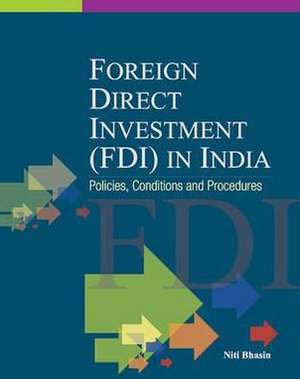Foreign Direct Investment (FDI) in India
Autor Niti Bhasinen Limba Engleză Hardback – 4 noi 2012
Preț: 538.24 lei
Preț vechi: 603.87 lei
-11% Nou
Puncte Express: 807
Preț estimativ în valută:
102.100€ • 108.03$ • 85.74£
102.100€ • 108.03$ • 85.74£
Carte indisponibilă temporar
Doresc să fiu notificat când acest titlu va fi disponibil:
Se trimite...
Preluare comenzi: 021 569.72.76
Specificații
ISBN-13: 9788177083125
ISBN-10: 8177083120
Pagini: 368
Dimensiuni: 190 x 245 x 35 mm
Greutate: 1.03 kg
Editura: Gazelle Book Services Ltd
ISBN-10: 8177083120
Pagini: 368
Dimensiuni: 190 x 245 x 35 mm
Greutate: 1.03 kg
Editura: Gazelle Book Services Ltd
